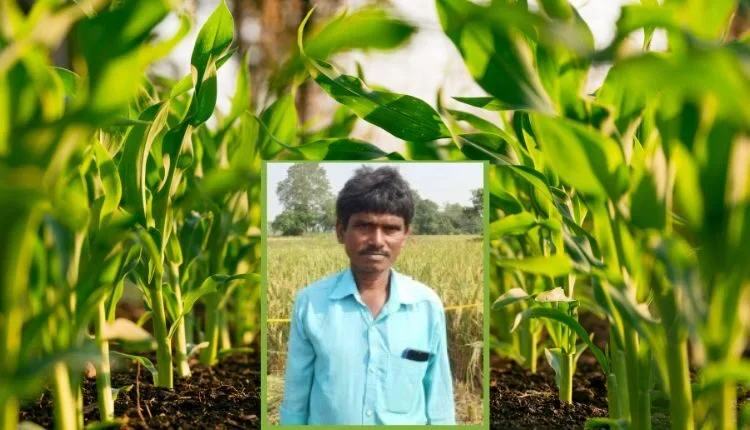Natural farming reduced cost and increased profit
Natural farming improves the quality of both soil and crops
Natural farming is not only beneficial for the farmers, but also for the common people and the environment. In the absence of correct information, farmers use chemical-rich fertilizers and pesticides thinking that the benefits will be high, while a farmer from Andhra Pradesh adopts natural farming to not only reduce the cost of cultivation but also earn more profit.
Nowadays most of the farmers use chemical fertilizers and pesticides to get more crops. Due to this gradually the nutritional value of the soil ends, its fertility also gets destroyed. The quality of crops is also less as compared to natural farming. Farming is in the interest of farmers as well as the environment and gradually, many farmers have started understanding its importance and have adopting natural farming completely. One such farmer is Gedda Appalanaidu, a resident of Vizianagaram district of Andhra Pradesh. By adopting natural farming, not only did the cost of cultivation came down, but profit also increased.
What is Natural Farming?
This farming is done completely in a natural way. In this, instead of chemical fertilizers and pesticides, cow dung manure and natural insecticides like neem etc. are used. Zero budget natural farming is basically based on farmed indigenous cow dung and urine. In this technique of farming, Jeevamrut, Ghanjivamrit and Jaman Beejamrut are made from the dung and urine of indigenous species of cows. The use of these in agriculture makes the soil more fertile.
Also Read: Organic Farming: Do you have the guts to leave a government job? If yes, then meet Nabanita
Adopted Protocol
Sri Gedda Appalanaidu adopted all things related to natural farming like Beejamrut, Ghanjivamrut, Dravjeevamrut, Pre-Monsoon Dry Sowing (PMDS), Growth Promoters (Eggs, Amino Acids, Saptadanyakura Kashayam and Botanical Extracts) and use of astringent for pest management. Under pre-monsoon dry sowing, 18-20 crops are sown. Due to this, different types of crops are grown in the field during the summer season. Under pre-monsoon dry sowing, 45-60 days after the sowing of the crops, it is grazed by livestock and the residue is mixed with the soil before transplanting the paddy.
Community cadre inspired
Mr. Gedda Appalanaidu was inspired by the community cadre consisting of master farmers to adopt natural farming. Gedda started it with treated seeds and used botanical extracts for pest control in the first year. By the second year, his faith increased, so he completely adopted natural farming.
How natural farming is done?
Shri Gedda Appalanaidu mixes Ghanjivamrut in the soil at the rate of 400 kg per acre. Dravjeevamrut is applied to the soil at the rate of 200 litres per acre at an interval of 15 days. Apart from this he adopted other elements of natural farming like seed treatment, clipping of leaf tips, yellow sticky plates, pheromone traps, bird perch etc. Botanical extracts are used as growth promoters and as pest control to increase yield. They also receive continuous technical support from master farmers called Community Resource Persons (CRPs).
Benefits of natural farming
Adopting this method, reduced the cost of cultivation. Monsoon dry sowing (PMDS) improved soil health, increased water holding capacity, increased soil organic carbon. The use of botanical extracts has reduced the incidence of pests and diseases. Cultivation of many crops led to an increase in the number of bees and dragon flies etc. which are beneficial for farming. The introduction of earthworms in the soil also increases its fertility and crop production.
How much profit increased?
He cultivates MTU 1121 variety of paddy. In traditional way of farming, where their cost used to come to Rs 52500, adopting natural methods has started costing Rs 41250. Apart from this, the profit was only Rs 68638 in conventional farming which increased to Rs 96297 in natural farming.
Contact us – If farmers want to share any valuable information or experiences related to farming, they can connect with us via phone or whatsapp at 9599273766 or you can write to us at “kisanofindia.mail@gmail.com”. Through Kisan of India, we will convey your message to the people, because we believe that if the farmers are advanced then the country is happy.

